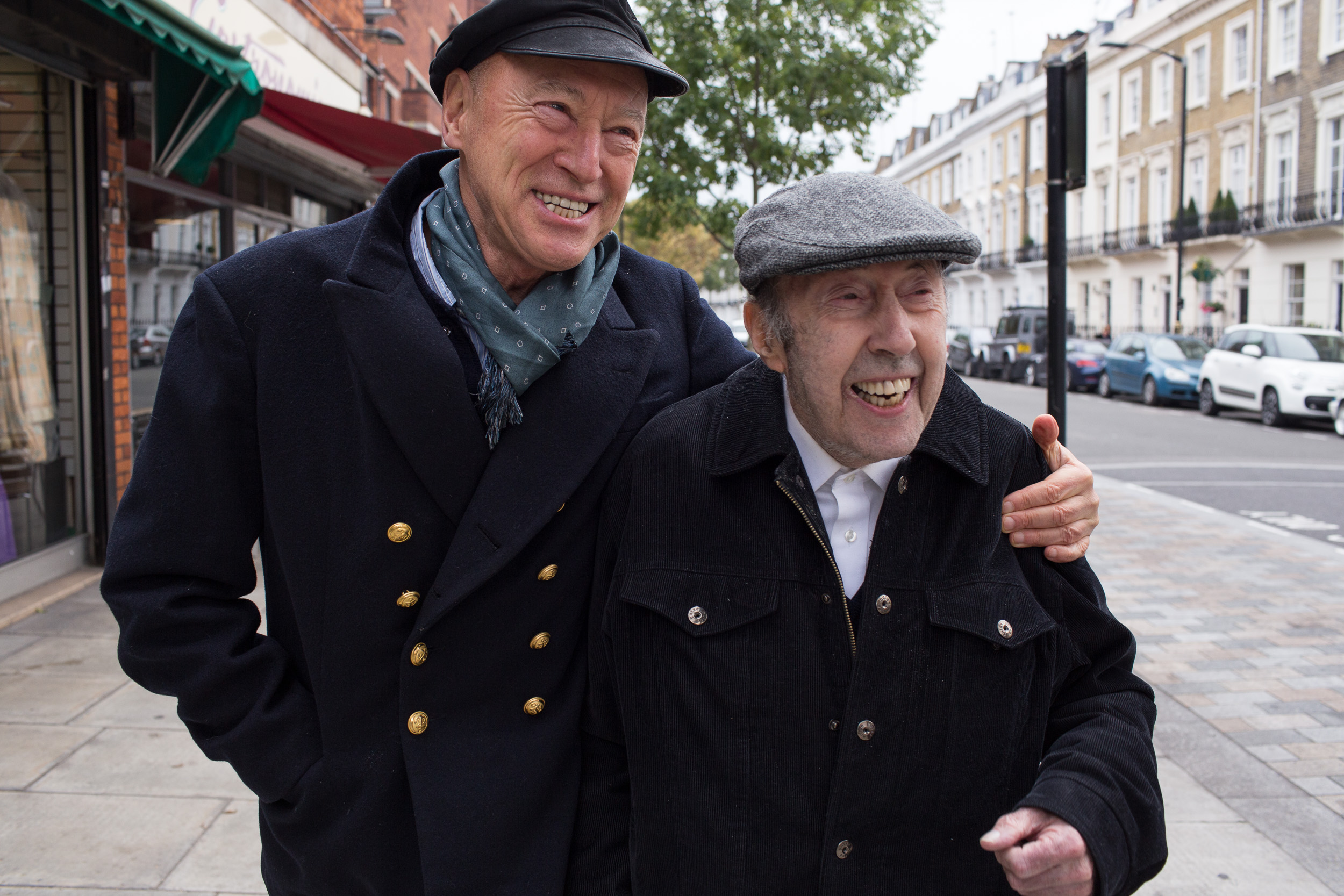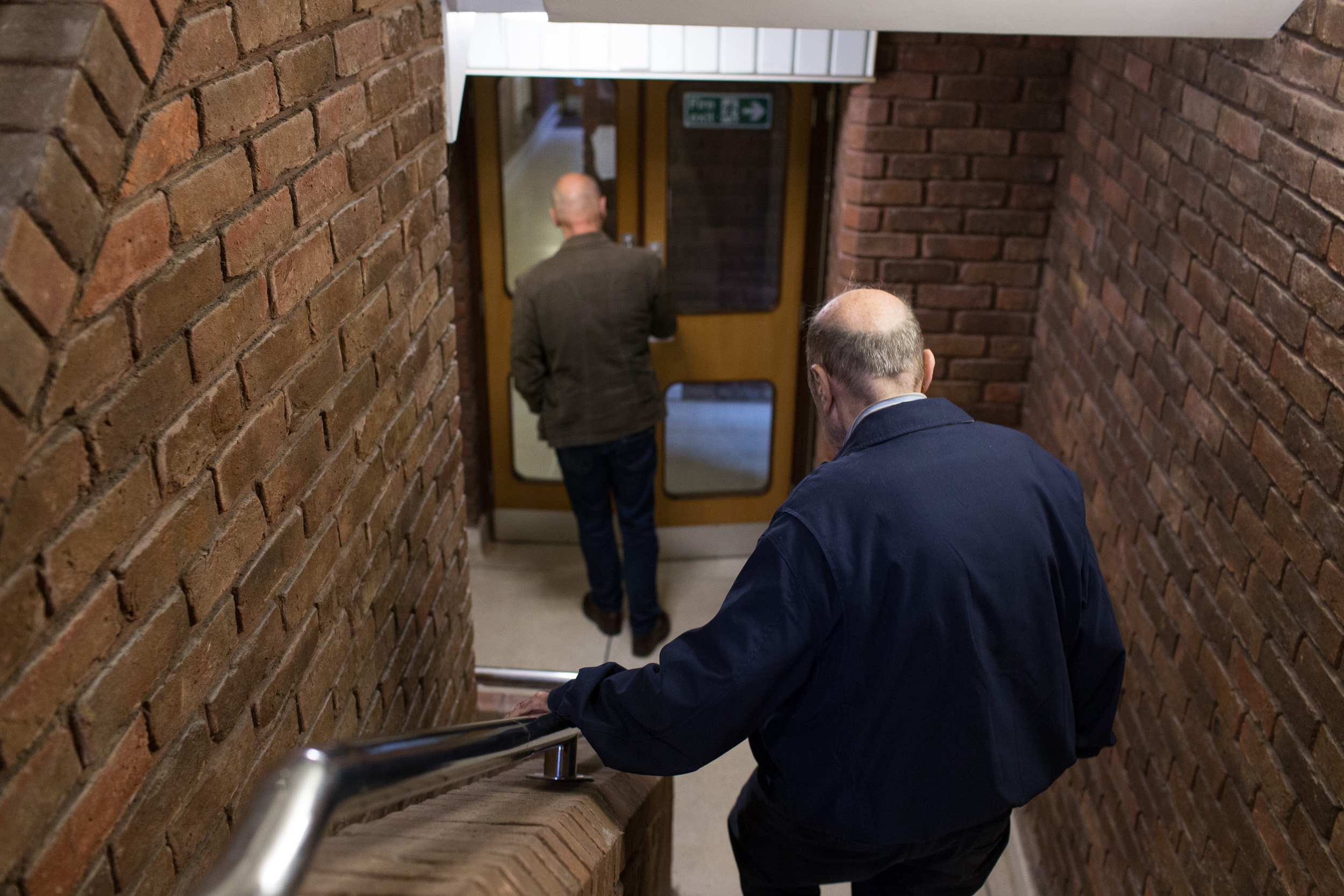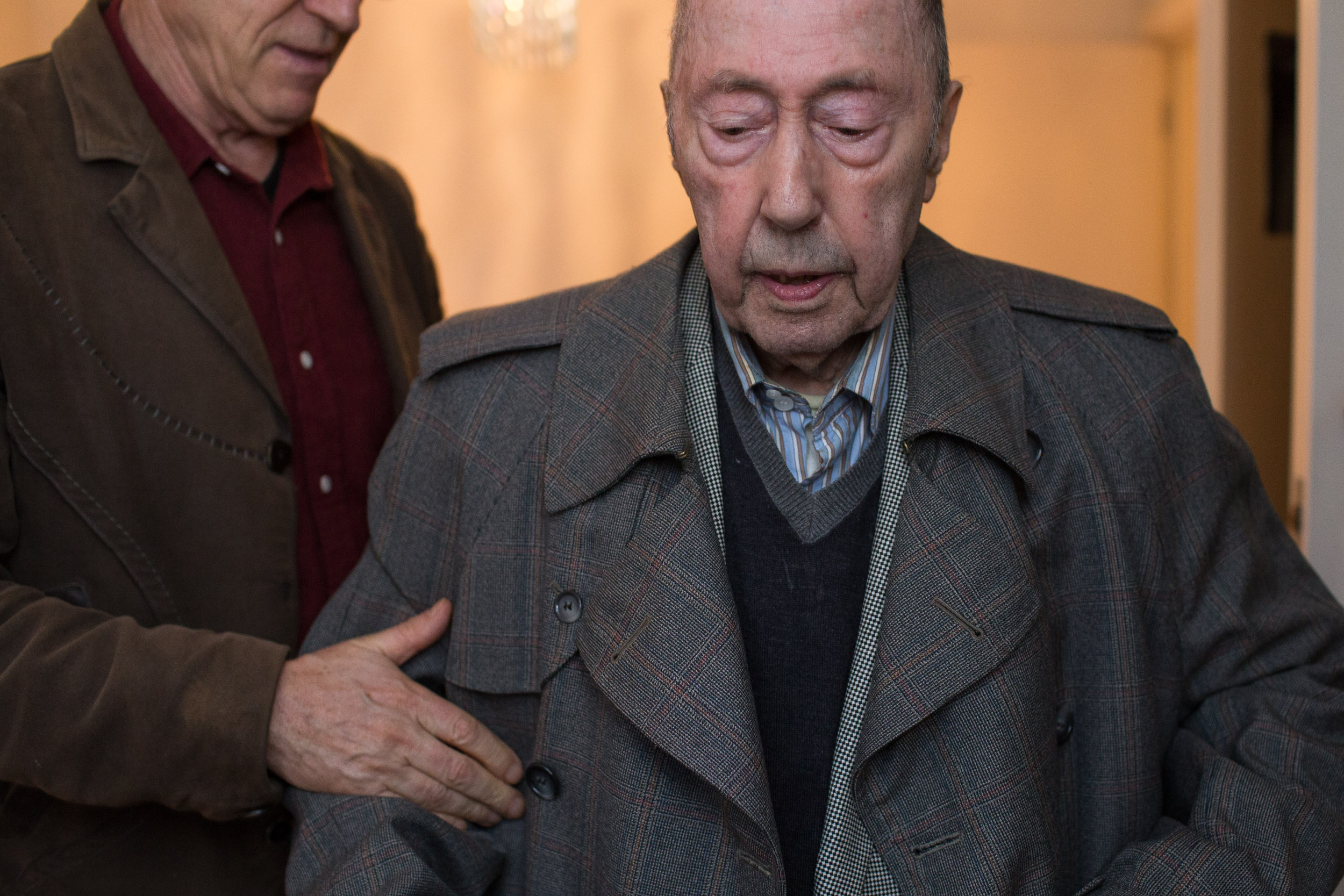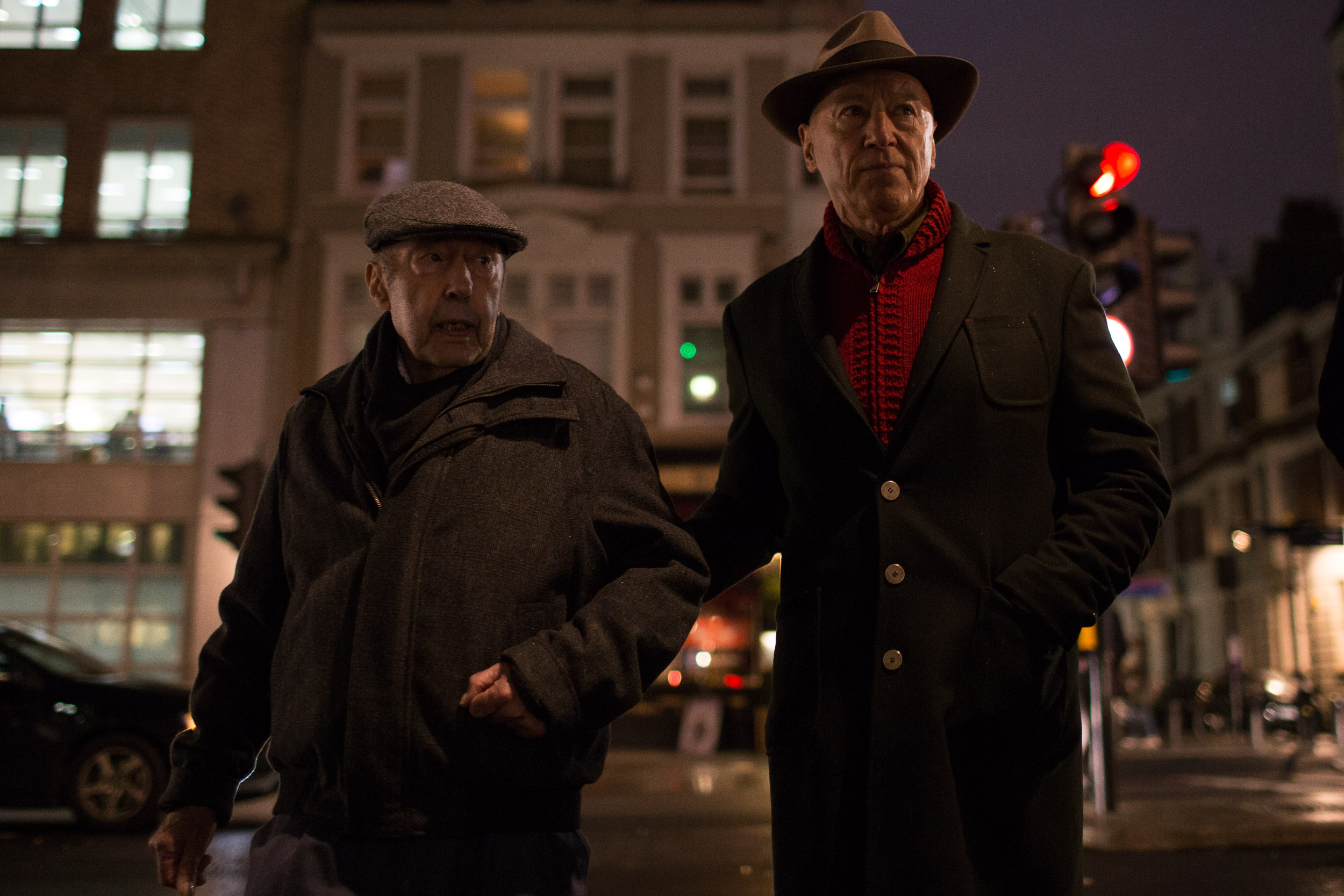iain and roy
“And as the years have passed, the time has grown longer. The sad truth is that what I could recall in five seconds all too soon needed ten, then thirty, then a full minute – like shadows lengthening at dusk. Someday, I suppose, the shadows will be swallowed up in darkness.”
Iain’s been keeping an eye out for Roy for about two years now. Ever since Roy’s sister Hazel passed away, he’s struggled to cope on his own.
They’ve lived in the same block of flats in south-west London for years – Roy on the ground floor, Iain above. 16 steps separate them, but until Hazel died, they’d been on little more than nodding terms.
Roy moved into the block when his sister was diagnosed with cancer – she lived down the corridor from Iain. For several years, he prepared all her meals and Iain would see him ferrying supplies back and forth every day. He barely registered the existence of anyone else – she was his world.
When she eventually lost her fight, that world collapsed. He couldn’t deal with the paperwork and decisions that her death forced on him. He had no family left to help. Iain felt he had to do something.
Iain is a force of nature. At 71 he’s only ten years younger than Roy, but when they’re together it feels like more than 30. He positively radiates energy, vitality and confidence. He’s a leader, a man who gets things done. He helped Roy to pack up Hazel’s flat and get his life back on track.
As time went on and they got to know each other better, he soon realised that Roy was suffering from more than just grief. When he eventually got him to a doctor, he was diagnosed with the early stages of dementia. Since then, his condition has steadily declined.
With his sister gone and no friends in the area, Roy’s natural inclination would be to sit in his flat, alone, for days on end. Recently, an elderly woman in the block died and her body was only discovered a week later when flies started to build up on her bedroom window. Iain was horrified, and is determined that this won’t happen to Roy.
Every morning, he pops down to check on him, makes sure he’s up and dressed, helps him with tasks around the house – then forces him out into the world.
They go for a stroll and then stop for coffee, pop to the pub or spend whole afternoons chatting with the old boys in the market. Roy lights up in his company. When they’re together, you start to see the real Roy – a kind, gentle man, with a wicked sense of humour.
Where Iain leads, Roy follows. Roy is increasingly anxious, worrying about little things like his keys, glasses and medication. But with Iain around, he visibly relaxes – he trusts him so completely that even when he doesn’t always know what’s happening, if Iain’s there he knows it’ll be ok.
Initially, Iain says he was driven by a sense of responsibility, of duty – he couldn’t stand by and watch a man suffer. But over time they’ve become very fond of each other. Roy is his pal, he says, not his patient.
They don’t have all that much in common, but they do share a deeply ingrained aversion to the Conservative Party, as well as an appreciation for classic British tailoring. Iain is a seriously sharp dresser – and Roy’s closet is a treasure trove, with some beautifully preserved jackets and overcoats from the 60s and 70s.
Iain came from a working class background in Glasgow, but his father – a policeman and a committed Communist – ensured his son had the cultural education his peers did not. As a boy he read Russian literature, went to the theatre and visited galleries. Iain remains an admirer of the arts – but is no longer a member of the Communist Party.
Roy’s cultural upbringing was more limited, so Iain likes to broaden his horizons. Roy had never set foot in an art gallery before Iain took him to the Tate over Christmas. He said he didn’t understand the modern stuff, but he liked the old paintings.
Iain and Roy have become a bit of a Pimlico institution. Everyone knows them in the local market and some of the stallholders slip Roy little freebies – even the odd piece from the vintage stall.
Roy still gets a handful of Christmas cards from his old east London neighbours, but because he can’t remember their addresses, or what happened to his address book, he can’t send any back. Amid the tragedy, Iain says, there are moments of dark humour to be found.
Thanks to Iain, a nurse now visits Roy every morning to drop off his medication, for blood pressure and thrombosis. Six pills in the morning, two at night.
Pimlico has changed in the time they’ve lived in the block. The estate is now encircled by upmarket developments, with more under construction. Iain jokes that soon none of them – him, Roy or the building – will still be standing.
Despite regular trips to the memory clinic, Roy doesn’t really grasp that he has dementia. Iain says they have some pretty surreal conversations. He still thinks Hazel is alive and sometimes, in the middle of the night, he wanders through the building knocking on doors, looking for her.
Iain has travelled the world, married, had children, divorced, worked as a bricklayer, a fireman, a university lecturer and a union organiser. He was thrown out of school at 15 for being a troublemaker and yet went on to study at LSE and Warwick. Today, he lives with his partner Amanda and their cat Stanley. He still considers himself an anarchist.
Roy was born in Stratford and lived with his mother there until she died. He was briefly engaged, but never married or had children. Since his mother’s death he has always lived alone. He says he just never met the right girl.
Iain discussed applying for power of attorney over Roy’s affairs with the GP, but in the end decided he wouldn’t be able to cope with the constant care he’ll soon need. At some point he knows he’ll have to call in social services, but he’s afraid of what will happen to Roy once he’s in the system.
The Alzheimer’s Society estimates that there are 850,000 people in the UK living with dementia. By 2025 that figure is expected to rise to a million. Around 670,000 people currently act as primary, unpaid carers, saving the NHS, they claim, £11 billion each year. Dementia is a progressive condition for which there is no cure.
“Friendship is unnecessary, like philosophy, like art…. It has no survival value; rather it is one of those things which give value to survival.”
This story was first published on Tumblr in January 2016. Tragically, in December 2016 Roy passed away.
share this story
If you found this story interesting, please consider sharing it.


























